| Listing 1 - 10 of 18 | << page >> |
Sort by
|
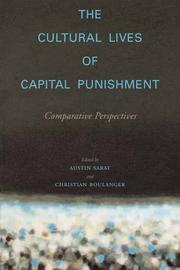
ISBN: 1423749537 9781423749530 9780804752336 0804752338 9780804752343 0804752346 Year: 2005 Publisher: Stanford, Calif. Stanford University Press
Abstract | Keywords | Export | Availability | Bookmark
 Loading...
Loading...Choose an application
- Reference Manager
- EndNote
- RefWorks (Direct export to RefWorks)
Capital punishment --- Social Welfare & Social Work --- Social Sciences --- Criminology, Penology & Juvenile Delinquency --- Abolition of capital punishment --- Death penalty --- Death sentence --- Criminal law --- Punishment --- Executions and executioners

ISBN: 1281024635 9786611024635 1906534144 9781906534141 1904380166 9781904380160 9781281024633 6611024638 Year: 2005 Publisher: Winchester Waterside Press
Abstract | Keywords | Export | Availability | Bookmark
 Loading...
Loading...Choose an application
- Reference Manager
- EndNote
- RefWorks (Direct export to RefWorks)
Capital punishment --- Trials (Infanticide) --- Infanticide --- Abolition of capital punishment --- Death penalty --- Death sentence --- Criminal law --- Punishment --- Executions and executioners --- Watkins, William Arthur,
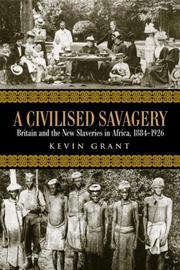
ISBN: 0415949009 0415949017 Year: 2005 Publisher: New York (N.Y.) Routledge
Abstract | Keywords | Export | Availability | Bookmark
 Loading...
Loading...Choose an application
- Reference Manager
- EndNote
- RefWorks (Direct export to RefWorks)
Slavery --- History --- Great Britain --- Colonies --- Abolition of slavery --- Antislavery --- Enslavement --- Mui tsai --- Ownership of slaves --- Servitude --- Slave keeping --- Slave system --- Slaveholding --- Thralldom --- Crimes against humanity --- Serfdom --- Slaveholders --- Slaves --- Enslaved persons
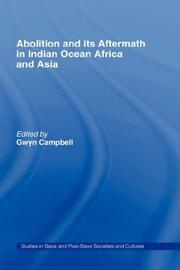
ISBN: 0714655031 Year: 2005 Publisher: London ; New York Routledge
Abstract | Keywords | Export | Availability | Bookmark
 Loading...
Loading...Choose an application
- Reference Manager
- EndNote
- RefWorks (Direct export to RefWorks)
Slavery --- Indian Ocean Region --- History --- Africa --- Asia --- Slave trade --- Abolition of slavery --- Antislavery --- Enslavement --- Mui tsai --- Ownership of slaves --- Servitude --- Slave keeping --- Slave system --- Slaveholding --- Thralldom --- Crimes against humanity --- Serfdom --- Slaveholders --- Slaves --- Enslaved persons

ISBN: 0203955501 1135408645 9781135408718 1135408718 9780203955505 0415949009 9780415949002 0415949017 9780415949019 9781135408640 9781135408787 Year: 2005 Publisher: New York
Abstract | Keywords | Export | Availability | Bookmark
 Loading...
Loading...Choose an application
- Reference Manager
- EndNote
- RefWorks (Direct export to RefWorks)
In the two decades before World War One, Great Britain witnessed the largest revival of anti-slavery protest since the legendary age of emancipation in the mid-nineteenth century. Rather than campaigning against the trans-Atlantic slave trade, these latter-day abolitionists focused on the so-called 'new slaveries' of European imperialism in Africa, condemning coercive systems of labor taxation and indentured servitude, as well as evidence of atrocities. A Civilized Savagery illuminates the multifaceted nature of British humanitarianism by juxtaposing campaigns again
Slavery --- Abolition of slavery --- Antislavery --- Enslavement --- Mui tsai --- Ownership of slaves --- Servitude --- Slave keeping --- Slave system --- Slaveholding --- Thralldom --- Crimes against humanity --- Serfdom --- Slaveholders --- Slaves --- History --- Great Britain --- Colonies --- Enslaved persons
Book
ISBN: 2213622221 9782213622224 Year: 2005 Publisher: Paris : Fayard,
Abstract | Keywords | Export | Availability | Bookmark
 Loading...
Loading...Choose an application
- Reference Manager
- EndNote
- RefWorks (Direct export to RefWorks)
Antislavery movements --- Slavery --- Mouvements antiesclavagistes --- Esclavage --- Slaves --- Emancipation --- History. --- Slaves - Emancipation - History. --- Slavery - History. --- Antislavery movements - History. --- LAS CASAS (BARTOLOME DE), RELIGIEUX ET ECRIVAIN ESPAGNOL, 1474-1566 --- MONTAIGNE (MICHEL EYQUEM DE), ECRIVAIN FRANCAIS, 1533-1592 --- MOUVEMENTS ANTIESCLAVAGISTES --- ESCLAVAGE --- ABOLITIONNISTES --- CRITIQUE ET INTERPRETATION --- EUROPE --- HISTOIRE --- ETATS-UNIS --- ABOLITION
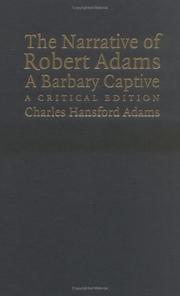
ISBN: 0521603730 0521842840 9780521603737 9780521842846 9780511614798 9780511345265 0511345267 1281108596 9781281108593 9786611108595 6611108599 0511344929 9780511344923 0511344554 9780511344558 0511344163 9780511344169 0511567510 9780511567513 0511614799 110715166X Year: 2005 Publisher: Cambridge New York Cambridge University Press
Abstract | Keywords | Export | Availability | Bookmark
 Loading...
Loading...Choose an application
- Reference Manager
- EndNote
- RefWorks (Direct export to RefWorks)
First published in London in 1816, The Narrative of Robert Adams is an account of the adventures of Robert Adams, an African American seaman who survives shipwreck, slavery, and brutal efforts to convert him to Islam, before being ransomed to the British consul. In London, Adams is discovered by the Company of Merchants Trading which publishes his story, into which Adams inserts a fantastical account of a trip to Timbuctoo. Adams's story is accompanied by contemporary essays and notes that place his experience in the context of European exploration of Africa at the time, and weigh his credibility against other contemporary accounts. Professor Adams's introduction examines Adams's credibility in light of modern knowledge of Africa and discusses the significance of his story in relation to the early nineteenth century interest in Timbuctoo, and to the literary genres of the slave narrative and the Barbary Captivity narrative.
Slavery --- Abolition of slavery --- Antislavery --- Enslavement --- Mui tsai --- Ownership of slaves --- Servitude --- Slave keeping --- Slave system --- Slaveholding --- Thralldom --- Crimes against humanity --- Serfdom --- Slaveholders --- Slaves --- Adams, Robert --- Travel --- Sahara --- Tombouctou (Mali) --- Timbuctoo (Mali) --- Tombutu (Mali) --- Timboctú (Mali) --- Timbuctú (Mali) --- Timbuktu (Mali) --- Timbuktu --- Tumbuktū (Mali) --- Tunbukt (Mali) --- Tunbuktū (Mali) --- Description and travel. --- Adams, Robert, --- Arts and Humanities --- History --- Enslaved persons
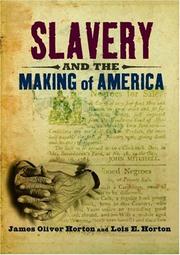
ISBN: 1280603410 1429440287 9781429440288 019517903X 9780195179033 9786610603411 6610603413 Year: 2005 Publisher: Oxford New York Oxford University Press
Abstract | Keywords | Export | Availability | Bookmark
 Loading...
Loading...Choose an application
- Reference Manager
- EndNote
- RefWorks (Direct export to RefWorks)
Slavery --- African Americans --- Regions & Countries - Americas --- History & Archaeology --- United States - General --- Black history --- Abolition of slavery --- Antislavery --- Enslavement --- Mui tsai --- Ownership of slaves --- Servitude --- Slave keeping --- Slave system --- Slaveholding --- Thralldom --- Crimes against humanity --- Serfdom --- Slaveholders --- Slaves --- History --- African Americans history --- history --- Enslaved persons

ISBN: 9780520932074 9786612759376 0520932072 1598755889 1423717341 9781423717348 9781598755886 9780520245068 0520245067 9780520245075 0520245075 0520245067 0520245075 128275937X 6612759372 Year: 2005 Publisher: Berkeley, Calif. University of California Press
Abstract | Keywords | Export | Availability | Bookmark
 Loading...
Loading...Choose an application
- Reference Manager
- EndNote
- RefWorks (Direct export to RefWorks)
Although slavery is illegal throughout the world, we learned from Kevin Bales's highly praised exposé, Disposable People: New Slavery in the Global Economy, that more than twenty-seven million people-in countries from Pakistan to Thailand to the United States--are still trapped in bondage. With this new volume, Bales, the leading authority on modern slavery, looks beyond the specific instances of slavery described in his last book to explore broader themes about slavery's causes, its continuation, and how it might be ended. Written to raise awareness and deepen understanding, and touching again on individual lives around the world, this book tackles head-on one of the most urgent and difficult problems facing us today. Each of the chapters in Understanding Global Slavery explores a different facet of global slavery. Bales investigates slavery's historical roots to illuminate today's puzzles. He explores our basic ideas about what slavery is and how the phenomenon fits into our moral, political, and economic worlds. He seeks to explain how human trafficking brings people into our cities and how the demand for trafficked workers, servants, and prostitutes shapes modern slavery. And he asks how we can study and measure this mostly hidden crime. Throughout, Bales emphasizes that to end global slavery, we must first understand it. This book is a step in that direction.
Forced labor. --- Prostitution. --- Slave labor. --- Slave trade. --- Slavery. --- Abolition of slavery --- Antislavery --- Enslavement --- Mui tsai --- Ownership of slaves --- Servitude --- Slave keeping --- Slave system --- Slaveholding --- Thralldom --- Crimes against humanity --- Serfdom --- Slaveholders --- Slaves --- Forced labor --- Female prostitution --- Hustling (Prostitution) --- Prostitution, Female --- Sex trade (Prostitution) --- Sex work (Prostitution) --- Street prostitution --- Trade, Sex (Prostitution) --- White slave traffic --- White slavery --- Work, Sex (Prostitution) --- Sex-oriented businesses --- Brothels --- Pimps --- Procuresses --- Red-light districts --- Sex crimes --- Compulsory labor --- Conscript labor --- Labor, Compulsory --- Labor, Forced --- Employees --- Sociology of work --- Human rights --- Slavery --- Slave labor --- Slave trade --- Sex work --- Enslaved persons --- abolition. --- academic. --- antislavery. --- crime. --- criminal justice. --- current affairs. --- economics. --- economy. --- ethics. --- expose. --- global economy. --- global issues. --- global slavery. --- globalization. --- human rights. --- human trafficking. --- international. --- modern slavery. --- morals. --- pakistan. --- phenomenon. --- politics. --- race issues. --- race. --- racism. --- redemption. --- scholarly. --- servitude. --- slavery. --- thailand. --- true story. --- us history.
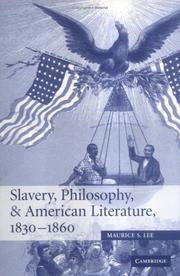
ISBN: 9780521152686 0521152682 9780511485572 9780521846530 0511115741 9780511115745 0511115199 9780511115196 0511122179 9780511122170 0511485573 1280202874 9781280202872 9786610202874 6610202877 0521846536 1107152410 9781107152410 0511199198 9780511199196 0511299915 9780511299919 Year: 2005 Publisher: Cambridge, UK New York Cambridge University Press
Abstract | Keywords | Export | Availability | Bookmark
 Loading...
Loading...Choose an application
- Reference Manager
- EndNote
- RefWorks (Direct export to RefWorks)
Examining the literature of slavery and race before the Civil War, Maurice Lee, in this 2005 book, demonstrates how the slavery crisis became a crisis of philosophy that exposed the breakdown of national consensus and the limits of rational authority. Poe, Stowe, Douglass, Melville, and Emerson were among the antebellum authors who tried - and failed - to find rational solutions to the slavery conflict. Unable to mediate the slavery controversy as the nation moved toward war, their writings form an uneasy transition between the confident rationalism of the American Enlightenment and the more skeptical thought of the pragmatists. Lee draws on antebellum moral philosophy, political theory, and metaphysics, bringing a different perspective to the literature of slavery - one that synthesizes cultural studies and intellectual history to argue that romantic, sentimental, and black Atlantic writers all struggled with modernity when facing the slavery crisis.
American literature --- Slavery in literature. --- Philosophy in literature. --- Slavery --- American literature. --- History and criticism. --- Philosophy. --- 1800-1899. --- Abolition of slavery --- Antislavery --- Enslavement --- Mui tsai --- Ownership of slaves --- Servitude --- Slave keeping --- Slave system --- Slaveholding --- Thralldom --- Crimes against humanity --- Serfdom --- Slaveholders --- Slaves --- Slavery and slaves in literature --- Slaves in literature --- 19th century --- History and criticism --- Slavery in literature --- Stowe, Harriet Elizabeth Beecher --- Criticism and interpretation --- Douglass, Frederick --- Melville, Herman --- Poe, Edgar Allan --- Emerson, Ralph Waldo --- Arts and Humanities --- Literature --- Enslaved persons --- Enslaved persons in literature
| Listing 1 - 10 of 18 | << page >> |
Sort by
|

 Search
Search Feedback
Feedback About UniCat
About UniCat  Help
Help News
News